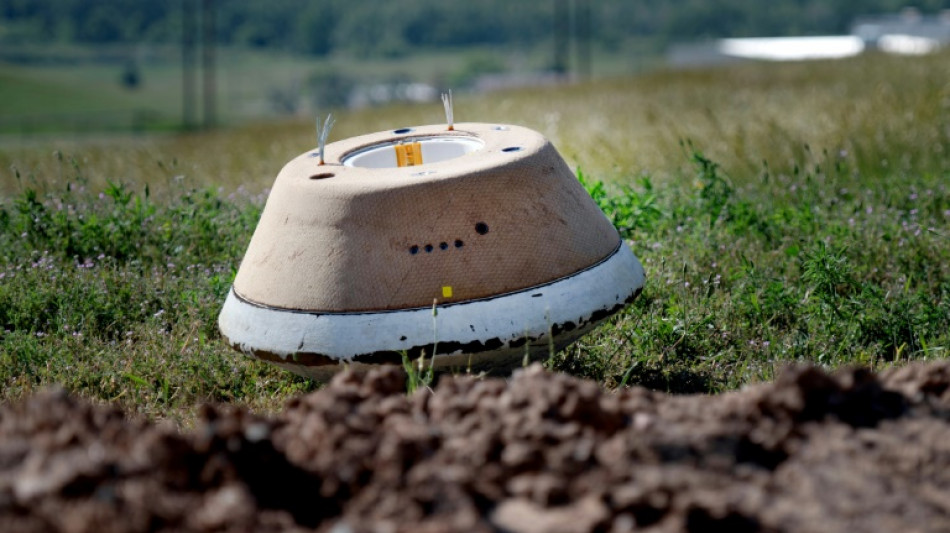
-
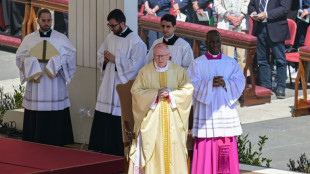 Pietro Parolin, career diplomat leading race to be pope
Pietro Parolin, career diplomat leading race to be pope
-
Nuclear submarine deal lurks below surface of Australian election

-
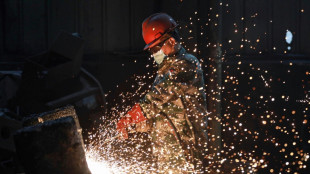 China's manufacturing shrinks in April as trade war bites
China's manufacturing shrinks in April as trade war bites
-
Financial markets may be the last guardrail on Trump
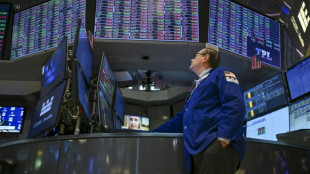
-
 Swedish journalist's trial opens in Turkey
Swedish journalist's trial opens in Turkey
-
Kiss says 'honour of a lifetime' to coach Wallabies at home World Cup

-
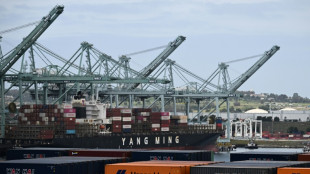 US growth figure expected to make for tough reading for Trump
US growth figure expected to make for tough reading for Trump
-
Opposition leader confirmed winner of Trinidad elections

-
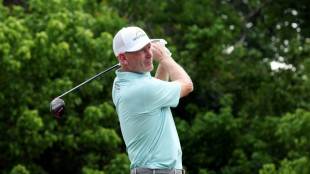 Snedeker, Ogilvy to skipper Presidents Cup teams: PGA Tour
Snedeker, Ogilvy to skipper Presidents Cup teams: PGA Tour
-
Win or bust in Europa League for Amorim's Man Utd

-
 Trump celebrates 100 days in office with campaign-style rally
Trump celebrates 100 days in office with campaign-style rally
-
Top Cuban dissidents detained after court revokes parole
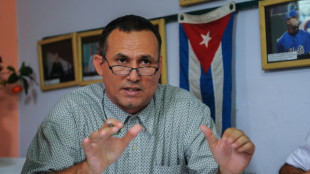
-
 Arteta urges Arsenal to deliver 'special' fightback against PSG
Arteta urges Arsenal to deliver 'special' fightback against PSG
-
Trump fires Kamala Harris's husband from Holocaust board

-
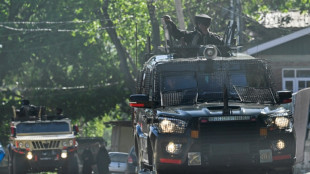 Pakistan says India planning strike as tensions soar over Kashmir attack
Pakistan says India planning strike as tensions soar over Kashmir attack
-
Weinstein sex attack accuser tells court he 'humiliated' her
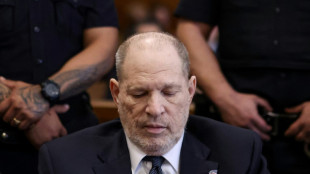
-
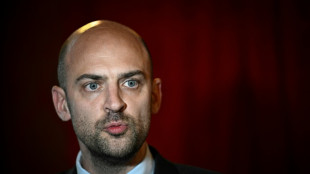 France accuses Russian military intelligence over cyberattacks
France accuses Russian military intelligence over cyberattacks
-
Global stocks mostly rise as Trump grants auto tariff relief
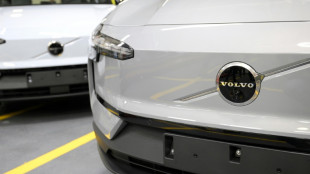
-
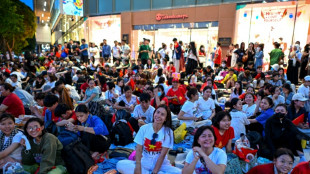 Grand Vietnam parade 50 years after the fall of Saigon
Grand Vietnam parade 50 years after the fall of Saigon
-
Trump fires ex first gentleman Emhoff from Holocaust board

-
 PSG 'not getting carried away' despite holding edge against Arsenal
PSG 'not getting carried away' despite holding edge against Arsenal
-
Cuban dissidents detained after court revokes parole
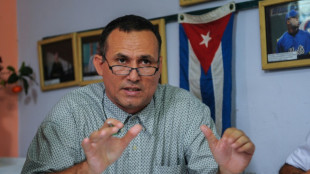
-
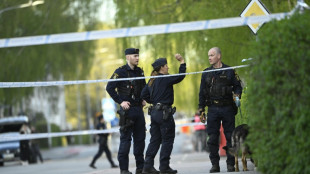 Sweden stunned by new deadly gun attack
Sweden stunned by new deadly gun attack
-
BRICS blast 'resurgence of protectionism' in Trump era
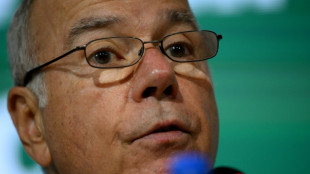
-
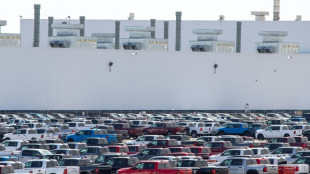 Trump tempers auto tariffs, winning cautious praise from industry
Trump tempers auto tariffs, winning cautious praise from industry
-
'Cruel measure': Dominican crackdown on Haitian hospitals
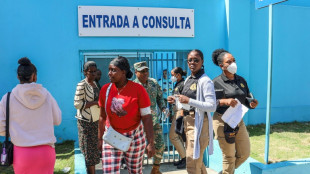
-
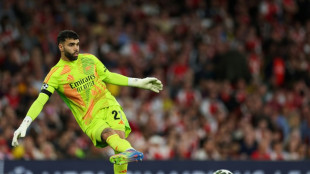 'It's only half-time': Defiant Raya says Arsenal can overturn PSG deficit
'It's only half-time': Defiant Raya says Arsenal can overturn PSG deficit
-
Dembele sinks Arsenal as PSG seize edge in Champions League semi-final

-
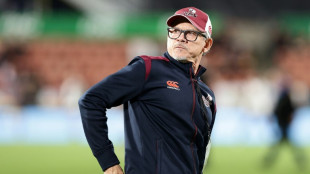 Les Kiss to take over Wallabies coach role from mid-2026
Les Kiss to take over Wallabies coach role from mid-2026
-
Real Madrid's Rudiger, Mendy and Alaba out injured until end of season

-
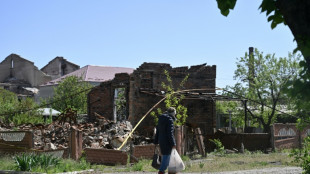 US threatens to quit Russia-Ukraine effort unless 'concrete proposals'
US threatens to quit Russia-Ukraine effort unless 'concrete proposals'
-
Meta releases standalone AI app, competing with ChatGPT
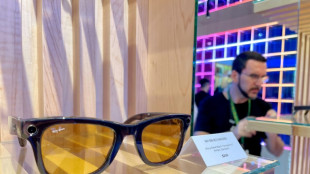
-
 Zverev crashes as Swiatek scrapes into Madrid Open quarter-finals
Zverev crashes as Swiatek scrapes into Madrid Open quarter-finals
-
BRICS members blast rise of 'trade protectionism'
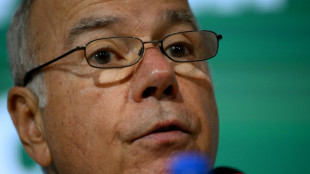
-
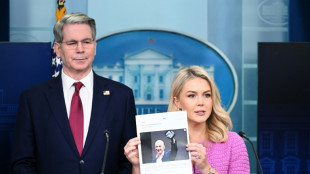 Trump praises Bezos as Amazon denies plan to display tariff cost
Trump praises Bezos as Amazon denies plan to display tariff cost
-
France to tax small parcels from China amid tariff fallout fears
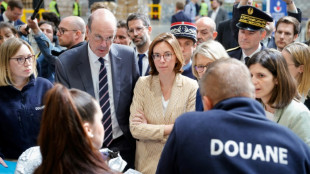
-
 Hong Kong releases former opposition lawmakers jailed for subversion
Hong Kong releases former opposition lawmakers jailed for subversion
-
Trump celebrates tumultuous 100 days in office

-
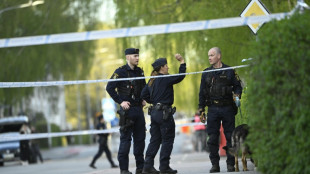 Sweden gun attack leaves three dead
Sweden gun attack leaves three dead
-
Real Madrid's Rudiger banned for six matches after Copa final red

-
 Firmino, Toney fire Al Ahli into AFC Champions League final
Firmino, Toney fire Al Ahli into AFC Champions League final
-
Maximum respect for Barca but no fear: Inter's Inzaghi
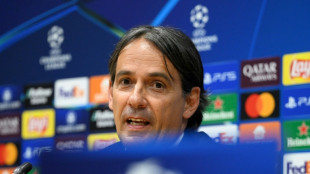
-
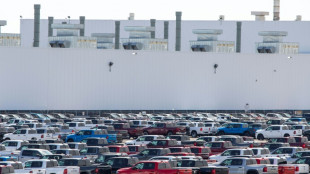 Trump signals relief on auto tariffs as industry awaits details
Trump signals relief on auto tariffs as industry awaits details
-
Cuban court revokes parole of two prominent dissidents
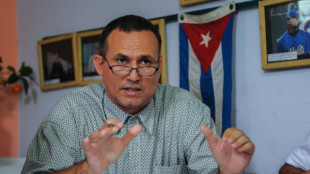
-
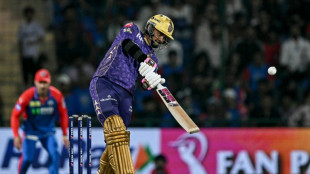 Narine leads from the front as Kolkata trump Delhi in IPL
Narine leads from the front as Kolkata trump Delhi in IPL
-
Amazon says never planned to show tariff costs, after White House backlash
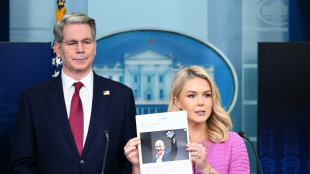
-
 Djokovic to miss Italian Open
Djokovic to miss Italian Open
-
Trossard starts for Arsenal in Champions League semi against PSG

-
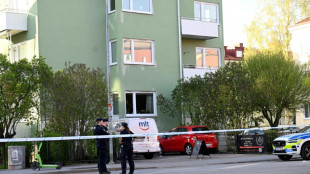 Sweden shooting kills three: police
Sweden shooting kills three: police
-
Real Madrid's Rudiger, Mendy out injured until end of season


Historic NASA asteroid mission set for perilous return
NASA's first mission to retrieve an asteroid sample and return it to US soil is expected to reach a perilous finale on Sunday with a descent into the Utah desert.
Scientists hope the material -- possibly the most ever retrieved by such a mission -- will provide humanity with a better understanding on the formation of our solar system and how Earth became habitable.
The US space probe OSIRIS-REx, launched in 2016, scooped up the sample from an asteroid called Bennu almost three years ago.
Touchdown is scheduled for Sunday at around 9:00 am local time (1500 GMT), at a military testing site in the western state.
Some four hours earlier, at about 67,000 miles (108,000 kilometers) away from Earth, the Osiris-Rex probe will release the capsule containing the sample.
The final descent lasts 13 minutes: the capsule enters the atmosphere at a speed of around 27,000 miles (43,000 kilometers) per hour and reaches a maximum temperature of 5,000 degrees Fahrenheit (2,800 degrees Celsius), NASA said.
If all goes well, two successive parachutes will bring the capsule to a soft landing on the desert floor, where it will be retrieved by prepositioned staff.
Hitting the target area of 250 square miles (650 square kilometers) is like "throwing a dart across the length of a basketball court and hitting the bullseye," Rich Burns, OSIRIS-REx project manager at NASA, told a press conference last month.
The night before landing, controllers will have a final opportunity to abort if conditions are not correct. If so, the probe would then circle the Sun before its next attempt -- in 2025.
"Sample return missions are hard. There's a number of things that can go wrong," said Sandra Freund, Lockheed Martin's OSIRIS-REx program manager.
Teams have meticulously prepared for the capsule's return -- even a "hard landing scenario" according to Freund -- in order to preserve the asteroid material in its pristine form.
A final dress rehearsal took place in August, with a replica capsule dropped from a helicopter.
- Texas 'clean room' -
Once the capsule is on the ground, a team will check its condition before placing it in a net, which will be lifted by helicopter and taken to a temporary "clean room."
The next day, the sample will be flown to a highly specialized laboratory at NASA's Johnson Space Center in Houston, Texas.
Scientists will open the capsule and separate pieces of the rock and dust over a period of days.
Some of the sample will be for studies now, with the rest stored away for future generations equipped with better technology -- a practice first started during the Apollo missions to the Moon.
NASA is expected to unveil its first results during a press conference on October 11.
Obtaining the sample involved a high-risk operation in October 2020: the probe came into contact with the asteroid for a few seconds, and a blast of compressed nitrogen was emitted to raise the dust sample which was then captured.
Bennu had surprised scientists during sample collection: during the few seconds of contact with the surface, the probe's arm had sunk into the soil, revealing a much lower density than expected.
However it allowed NASA to take far more than the initial target of 60 grams -- the agency thinks the sample could be up to some 250 grams of material.
That mass would be the "largest from beyond the orbit of the moon" NASA program executive Melissa Morris said.
- 'Seeds of life' -
The first samples brought to Earth by asteroids were carried out by Japanese probes in 2010 and 2020, with the latter found to contain uracil, one of the building blocks of RNA.
The finding lent weight to a longstanding theory that life on Earth may have been seeded from outer space when asteroids crashed into our planet carrying fundamental elements.
Asteroids like Bennu and Ryugu, one of the asteroids studied by Japan, may look similar but "can be very, very different," according to Morris.
Asteroids are interesting because they are composed of the original materials of the solar system.
The cupful of rocks may hold "clues we believe to some of the deepest questions that we asked ourselves as humanity," said University of Arizona at Tucson's Dante Lauretta, principal investigator on OSIRIS-REx.
The samples may represent the "seeds of life that these asteroids delivered at the beginning of our planet, leading to this incredible biosphere, biological evolution and to us being here today."
Bennu, 500 meters in diameter, orbits the Sun and approaches Earth every six years.
There is a small chance (1 in 2,700) that it will collide with the Earth in 2182, which would have a catastrophic impact.
NASA has studied ways to divert an asteroid's trajectory, and a better understanding of Bennu's composition could therefore prove useful.
F.Bennett--AMWN


